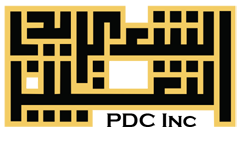The State of the Druze in Syria
The Druze of Syria face increasingly difficult decisions. With the Free Syrian Army making gains to their West, Daesh making gains to their East, and a restive Assad regime to their North, the Druze have found themselves at a crossroads. The Syrian Druze have long supported the Assad regime, as it serves as a guarantor of their security – like it does for many of the minority sects in the country. However, true to Druze tradition they remain, most of all, loyal to themselves. Assad’s position as a protector has served the Druze well, as the enemies of the Regime have largely been kept away from the Druze heartland in the South. New developments in the conflict however, make it appear that this is no longer the case. Will the Druze mobilize their formidable militia to explicitly support the strained regime or will they focus on self-preservation by abandoning Assad and joining forces with the opposition’s Southern Front?
The Druze, roughly 3% of the Syrian population, are mainly located in the Southern region of Syria, around the city of As-Suwayda and the Jabal al-Druze mountain. This region has been spared the devastation that many other areas of the country have experienced over the course of the civil war. However, with the Islamic State and the rebel Southern front on their border, there has been an increase in violence. The Druze have had mixed reactions to these developments; the only communal response has been an increased mobilization and awareness of the communities security concerns.
Many Druze currently serve in the government’s National Defense Forces, and have been deployed across the country to combat opposition forces. This is common for members of the many minority sects present in Syria. However, as the end of the Syrian regime looms on the horizon, many within the community are calling for a change in the community’s stance. Recent events highlight this, as many Druze appear to be taking cautious but deliberate steps away from the Regime. Community leaders have for some time now told young people to avoid conscription, and many have spoken out against the Regime. A Druze cleric even called for the kidnapping of a Regime military intelligence chief earlier this month, for he was accused of shelling As-Suwayda and blaming the opposition. Most recently, a Regime convoy of heavy weapons was stopped by local Druze as it was trying to leave As-Suwayda. The incident was resolved peacefully and the weapons were stationed back in the city, but this highlights both the developing relationship between the Regime and the Druze as well as the Druze’s security concerns. The Druze appear to be fine with the Regime, as long as it can provide them security and stability. However, if that arrangement is compromised, it seems that the Druze will have no problem taking matters into their own hands in order to preserve their community’s security.
An additional “insurance policy” for the Druze is their brethren in Lebanon and Israel. Earlier this week, Israeli Prime Minister Benjamin Netanyahu responded to domestic pressure from Israeli Druze to prevent the potential sectarian killings of Druze in Syria. He stated, ambiguously, that Israel would do what it had to do in order to prevent the killing of Druze. This additional state support of the Druze adds to the already present sectarian support it already enjoys. Druze from both countries would enter into the fray in Syria regardless of their countries’ stance in order to fight if the situation worsened.
This potential move away from the regime could mean closer cooperation or even an alliance with the Syrian rebels. However, traditional animosities between the majority Sunni Daraa rebels and the Druze of As-Suwayda might prevent such a partnership. More importantly, the Druze are weary of cooperating with rebel groups who have labeled the Druze heretics and who have, in some cases, even massacred Druze villages. Lebanese Druze leader Walid Jumblatt has long been an outspoken critic of the Regime and has encouraged his Syrian brothers to ally with opponents of the Regime. The camp of Druze in favor of this position is a growing minority, but might see an increase in stature should the Regime’s position worsen. Until such a point, there is no motivation or eagerness of the Druze to abandon the Regime for the opposition. The only way this is feasible is if the Regime’s position worsens significantly, or if pressure from ISIS become too great and the Druze have to forge a new deal to provide themselves with greater security.
In any scenario, the likely course of action for the Druze will be to play off the different sides and wait to see who will come out on top. While they do this, they will focus on self-reliance and attempt to bolster their own security forces in order to guarantee their own safety no matter what the outcome of the civil war. The uneasy partnership with the Regime that they have now is better than a prospective alliance with traditional rivals, but should the Islamic State or another actor threaten their survival, the Druze will mobilize their sectarian community in the region and utilize whatever partnership they can create to guarantee their place in Syria’s future.
